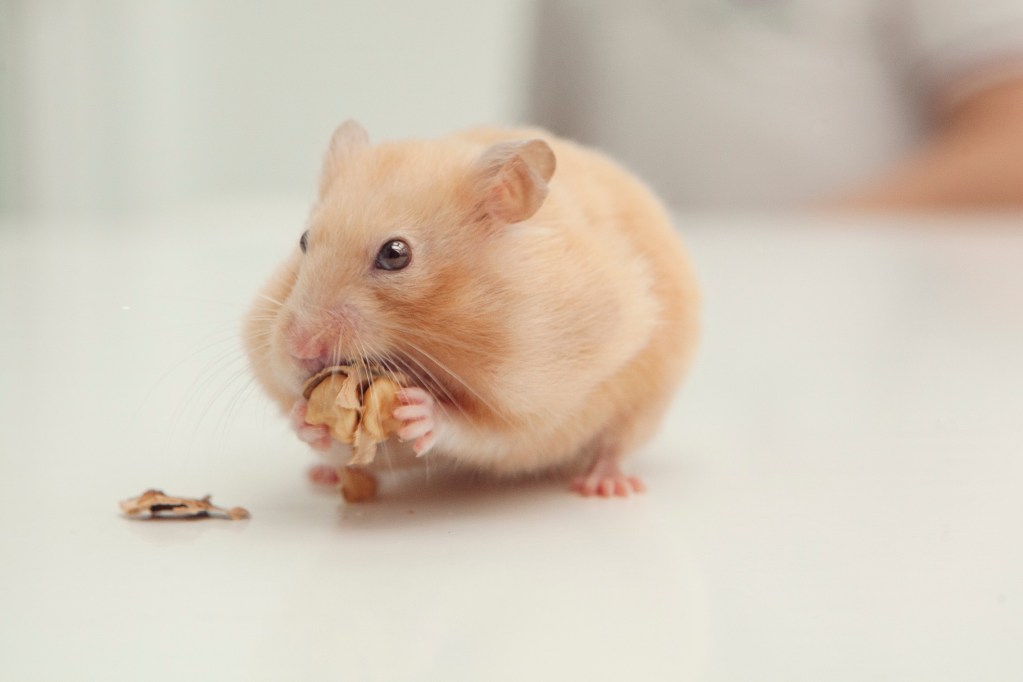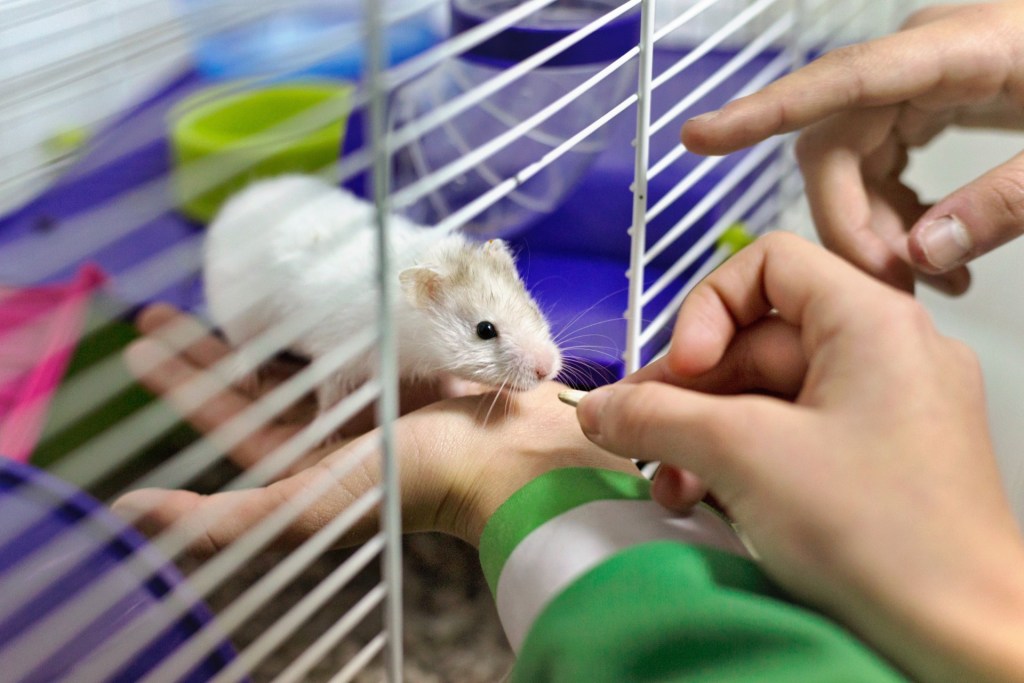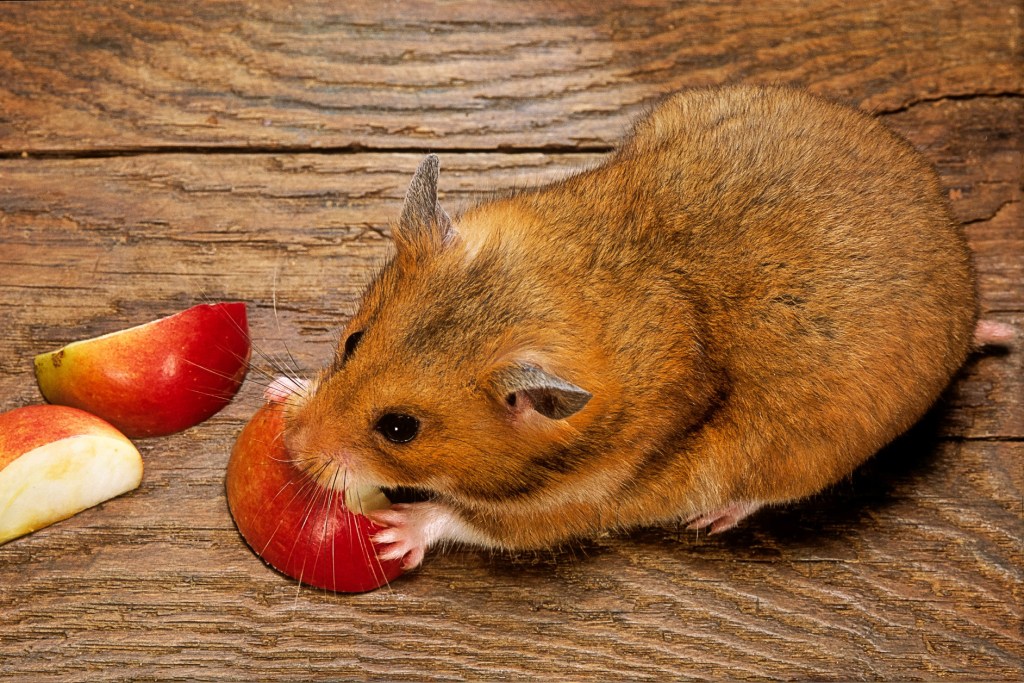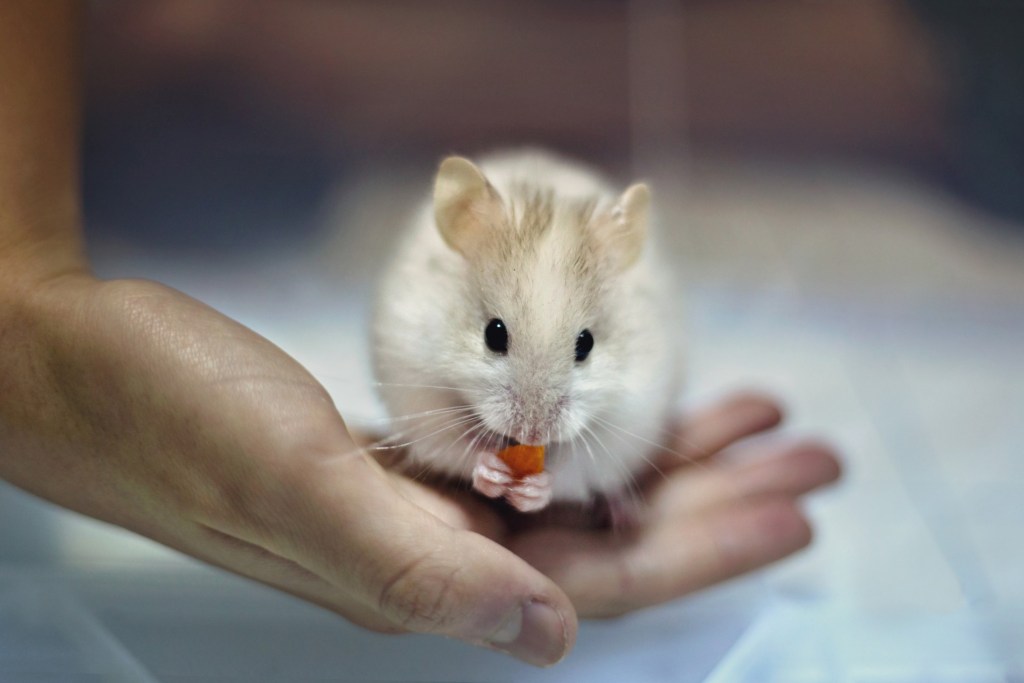What Cheese Dog Treat Can I Feed My Hamster
Before adding any pet to the family, you'll want to be sure you're well prepared to take care of them. And while the majority of people have some knowledge of how to care for cats and dogs, small animal care guidelines aren't as well known. Take hamsters, for example. Are you considering buying a hamster but want to be sure you can afford its lifestyle and diet?
What are the right kinds of pet hamster food you need to take note of? Are other types of hamster food healthier than others? We have answers to hamster feeding-related questions and more here.

What do hamsters eat?
The normal hamster diet
Hamsters are omnivores, meaning they eat meat and plants. In the wild, hamsters eat grain, grasses, seeds, and insects. It is crucial that hamsters in captivity have a diet similar to that of wild hamsters. All hamsters store food in their cheeks, which they sometimes save for later. Hamsters will eat a lot, so you must be careful to not overfeed them.
There are two types of hamsters usually kept as pets: Syrian hamsters and dwarf hamsters. Captive hamsters of both species should be fed about 10 grams of hamster pellets twice per day, or one tablespoon once per day. Although dwarf hamsters are smaller, their metabolism is much faster, which is why they eat similar amounts to those of Syrian hamsters. Hamsters like to snack throughout the day rather than eat large meals, so be sure your hamster has enough food to come back to or store in their cheeks.
Good foods for hamsters
Pellets
Hamster food in the form of pellets offers complete nutrition without worrying that you're leaving something out. Hamsters love to chew on them, and the pellets don't go bad as quickly as veggies or fruits.
The most significant upside to pelleted diets is that hamsters can't pick through to find their favorite little pieces. While you may put together a complete diet through various seeds, veggies, and fruits, your hamster probably only picks out its favorites.
Pellets are uniform in nature and look like little cookies or biscuits. There's nothing to pick out, so your hamster gets a complete meal no matter what.
Seed mixes
Seed mixes are a little more exciting to your hamster but also riskier. Some seed mixes also include pellets or dried fruits along with the different seeds. Hamsters will pick through to find their favorites and try to leave the rest.
Feeding seed mixes provide balanced nutrition, but the key is to allow your hamster to empty the food bowl entirely before adding in more mix. If you have more than one hamster, you may want to supplement with only pellets periodically.
Just seeds aren't going to provide the right nutrition for your hamster, so it's best to mix them. This is something you should pay close attention to because you don't want to leave your hamster's bowl empty, but refilling could allow your hamster to eat only certain things it likes.
Fresh foods
Hamsters get the most excited about fresh foods, and they often make great treats to supplement both your hamster's diet and to provide enrichment. There are quite a few safe fruits and veggies you can use as part of your hamster's menu, including:
Most greens — Greens provide essential nutrition and fiber for your hamster and help alleviate the chewing urges. They're low in calories but provide vital nutrients and water.
Fruits — Things like bananas, apples, strawberries, and blueberries provide a sweet treat for your hamster. They are nutritious and low in calories, but try not to feed too much of these to your hamster or it may not eat the regular food.
Vegetables — Things like peas, sweet potato, or squash could also provide a nutritious snack for your hamster. Be sure you clean the bowls thoroughly so you don't leave spoiled food accidentally.
Whole grains — Whole grain toast or bread can provide fiber and makes a fun treat when you don't have fresh veggies or fruits available.
Mealworms, eggs, and other proteins — Be sure you get mealworms from reliable sources or provide a bit of protein for your hamster. If you use something like chicken, make sure it's cooked thoroughly and leave the seasoning off.
All about hamster food mixes
The most complete nutrition your hamster can receive at once is a meal of prepared hamster food. Hamster pellets or muesli are sold in large bags or bins. Some veterinarians recommend feeding hamster pellets over hamster seed mixes as hamsters may select only certain seeds to eat from the latter, causing them to miss out on important nutrients. When picking a brand of hamster food, look for those that have no artificial colors or fillers. You can also choose to occasionally supplement your hamster's diet with meat, vegetables, fruits, timothy hay, or seeds. None of these items should be fed more than two or three times each week.
Can hamsters eat meat?

It is a common misconception that hamsters are strict herbivores. In fact, hamsters need animal protein to survive. Meat is a healthy hamster food as well as a good source of protein. Since wild hamsters eat insects, you might feed your hamster live or dried crickets or mealworms. If you're too squeamish to handle insects, hamsters can also eat some cooked meats. Cooked chicken and cooked beef are safe to feed to hamsters.
Raw meat should never be given to hamsters, and meat should be cooked without any seasonings. You can also feed canned (wet) dog food to a hamster. Regardless of which meat you choose to give your hamster, don't give them too large of a portion. Other sources of animal protein suitable for hamster consumption include low-fat hard cheeses and low-fat cottage cheese.
Can hamsters eat turkey?
Yes, hamsters can eat turkey, as long as it's properly cooked and given in very small amounts, so be sure it's chopped up into minuscule portions. Keep in mind just how tiny your little hamster's stomach is. You'll also want to be sure that the turkey is unsalted and is made without marinades, as both can be harmful to your hamster's health.

Can hamsters eat fruit or vegetables?
Aside from the occasional meaty treat, you can also feed your hamster a wide variety of fruits and vegetables. Before giving your hamster a whole cube of any food, allow them to first try a small bite of it. Note that if you give your hamster too much of a plant-based food in one sitting, they may develop diarrhea. Unlike dogs, hamsters can eat grapes.
Other human foods that are safe for hamsters
- Apples
- Bananas
- Blueberries
- Figs
- Pears
- Strawberries
- Watermelon
If you feed your hamster grapes, apples, or pears, be sure to first remove the skin and any large seeds, and cut the fruit into reasonably sized pieces. One cube of fruit should be enough of a treat for one day. Indeed, hamsters should only be given fresh greens two to three times a week. Regarding edible vegetables, hamsters can eat carrots, celery, cucumber, green peppers, lettuce, pumpkin, spinach, and squash. Similar to when feeding fruits, skins and seeds should be removed from vegetables prior to being given to a hamster.
Foods to avoid
Not all fruits and vegetables are safe for hamsters to eat, however. You'll want to avoid giving your furry friend anything on this list:
- Citrus fruits
- Pineapple
- Raspberries
- Apricots
- Nectarines
- Peaches
- Rhubarb
- Raw Beans
- Almonds
- Celergy
- Potato
All of the above are harmful to hamsters if consumed. Any meat, fruit, or vegetable fed to a hamster should be prepared immediately prior to feeding. Do not allow food in a hamster's cage to rot. Remove any food that is going bad as soon as you notice it. Moreover, sugary things that are bad for humans are also bad for hamsters and should not be fed to them — including white bread, chocolate, and candy.

When in doubt, consult your vet
Feeding a hamster doesn't have to be difficult, but you'll just want to be sure you have an understanding of what you can and can't give them. If you have more questions regarding what to feed your hamster, consult a veterinarian that specializes in small animals just to be on the safe side. Otherwise, hopefully, this guide has proved helpful to you in terms of the best hamster pet food to give your beloved friend.
Editors' Recommendations
- Best reptile pets: These are the 5 most affectionate reptiles you can welcome into your home
- How to tell when a hamster is sick or in pain: Look for these 4 signs and symptoms
- What do painted turtles eat? This is the only feeding guide you'll need
- A simple guide to what to feed tadpoles in your aquarium
- Disgusted by the idea of adopting a pet rat? 8 facts that could change your mind
Source: https://www.pawtracks.com/other-animals/hamster-pet-food/
0 Response to "What Cheese Dog Treat Can I Feed My Hamster"
Post a Comment